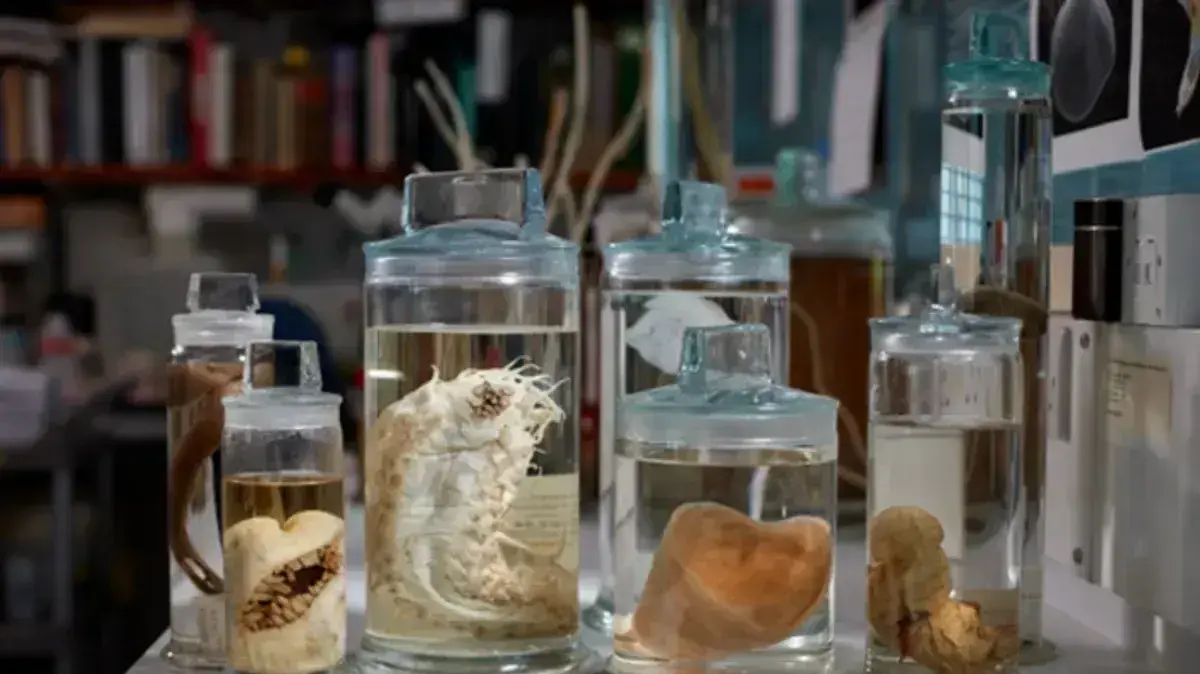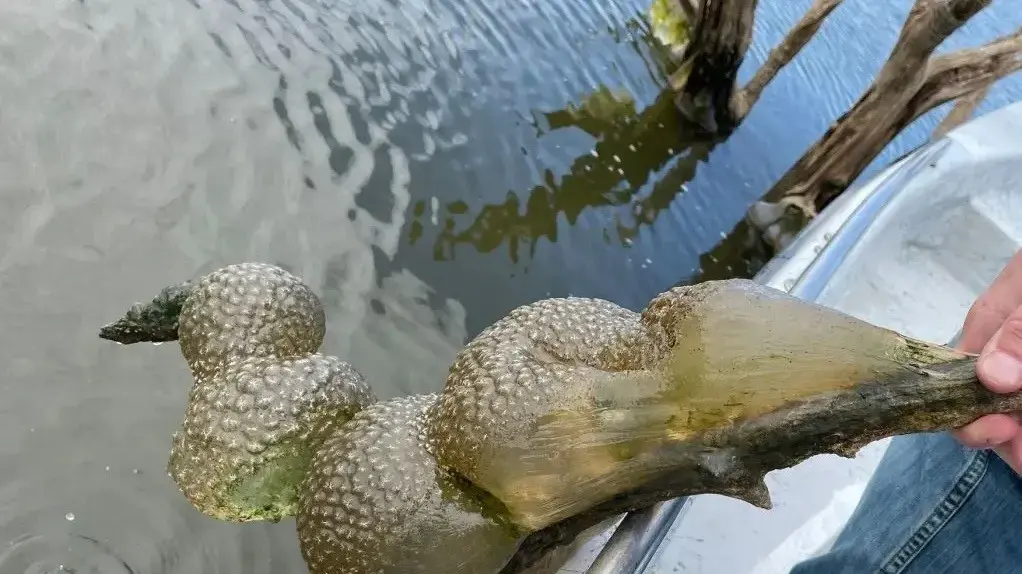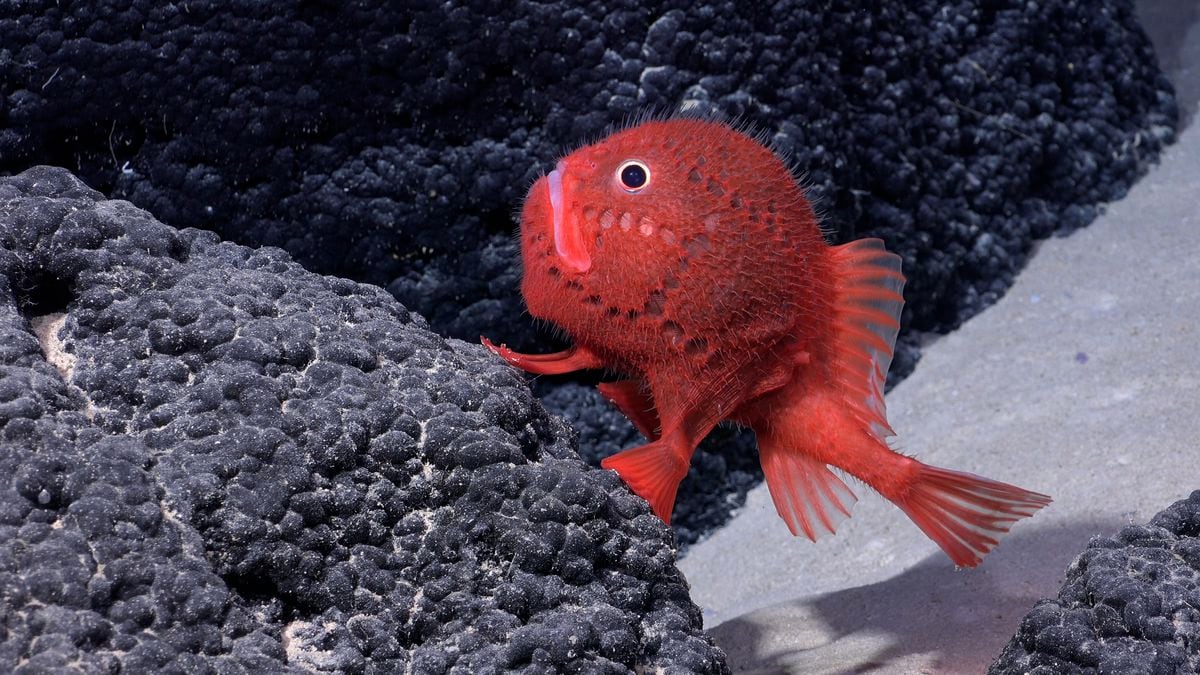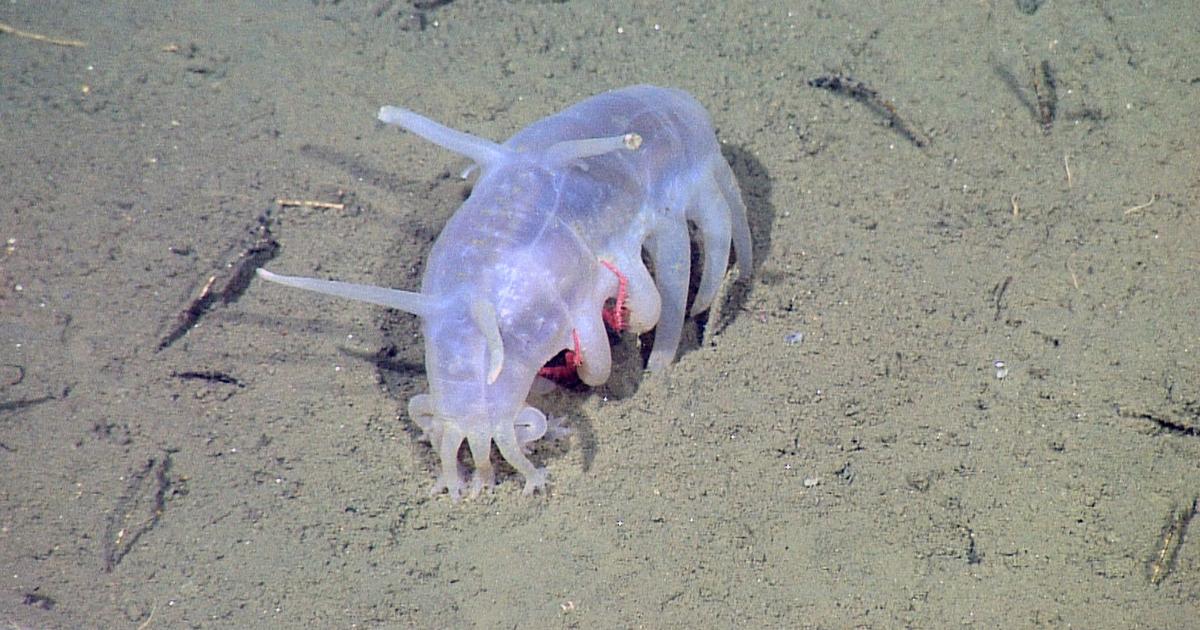The Clarion-Clipperton area is home to an incredible variety of marine life, such as the Dumbo octopus (NOAA)
No fewer than 5,578 different species of marine creatures, about 90 percent of which are new to science, have been discovered in the depths of the Pacific Ocean. These creatures were discovered by an international group of scientists who studied no less than 6 million square kilometers of water in an area called Clarion Clipperton in the Pacific Ocean, which stretches along the coasts of Mexico and Central America.
Among the thousands of life forms they found were various species of sea cucumbers, nematodes (capillary worms), carnivorous sponges, worms, arthropods and sea urchin-like skin thorns. Amazingly, almost all of them are unique to the region where they were found, with researchers estimating that only six species have so far been identified elsewhere in the world.
Jars of samples of creatures found in the depths of the ocean from the collection of the Natural History Museum in London (Photo: Screenshot, Trustees of the Natural History Museum London.)
"There are some amazing species there. Some sponges look like classic bathing sponges, and some look like vases. They are just beautiful. One of my favourites is the glass sponge – it has these little spikes, and under the microscope they look like tiny chandeliers or little sculptures," said Muriel Rabon, lead study author and deep sea ecologist at the Natural History Museum in London in the UK.
To better understand the region's rich biodiversity, the researchers sailed to the Pacific Ocean and used a number of different methods to survey life there, including remote-controlled underwater drones crossing the ocean floor and taking sediment samples of the seafloor for research.
"We were in a big boat, but it felt tiny in the middle of the ocean. You could see storms rolling in; It was very dramatic," Ravon recalled, "and it was amazing – with every sample we uploaded, we would see new species."
More underwater artifacts
at the bottom of the ocean, near a deadly volcano: new mutations of sharks
discovered A huge and mysterious blue hole has been discovered off the coast of Mexico: a window into new life forms?
And now they are in danger - because of batteries
However, the future of this vast and rare biodiversity is hardly optimistic. The habitat of the newly discovered species is in the crosshairs of companies and countries that carry out deep-sea mining, as it holds the world's largest reservoir of manganese, nickel, cobalt and other metals essential for battery production. These sought-after metals can be found in metal-rich pieces, sometimes called the "deep sea potatoes."
That's the problem
Green energy? The world runs out of materials to make it possible
See full article >
The dilemma here is a real environmental dilemma – because these materials are essential to the so-called "battery revolution," which is supposed to help make fossil fuels obsolete and stimulate the transition to green energy. However, obtaining these metals threatens to disrupt this complex ecosystem that has just been found.
The researchers say their latest research shows we need to better understand this diverse and unique environment — before it's too late. "There are so many wonderful species in the region, and with the possibility of impending mining, it is all the more important that we know more about these unexplored habitats," Ravon warned.
- tourism
Tags
- ocean
- fish
- Green Energy
- mining








